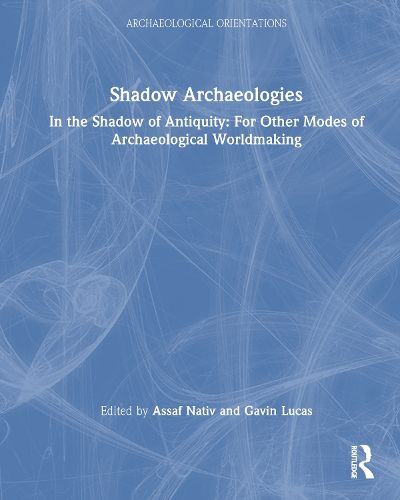Readings Newsletter
Become a Readings Member to make your shopping experience even easier.
Sign in or sign up for free!
You’re not far away from qualifying for FREE standard shipping within Australia
You’ve qualified for FREE standard shipping within Australia
The cart is loading…






Shadow Archaeologies explores the modes of knowledge production which operate where the light of mainstream, historically oriented archaeology, does not reach. It exposes the field's underbelly and dwells on issues that standard practice ignores or glosses over, questioning what archaeology and the archaeological are or could be.
The volume brings together scholars working at the discipline's theoretical cutting edge to challenge mainstream archaeology in various ways. They engage with the political dimensions of the discipline's mode of production, develop alternate practices, and conceive of other manifestations of the archaeological object, thus illuminating various ways in which the concept of shadow archaeology can be articulated. After an introduction by the editors, the volume is organised into three parts, which address from different angles the politics, practices, and objects of an archaeology that resides in the shadow of antiquity.
While the book will appeal to any archaeologist with an interest in theory, it is also a challenge to all archaeologists to reflect on their discipline and their own working practices and an invitation to join in the discussion about what archaeology might become.
$9.00 standard shipping within Australia
FREE standard shipping within Australia for orders over $100.00
Express & International shipping calculated at checkout
Shadow Archaeologies explores the modes of knowledge production which operate where the light of mainstream, historically oriented archaeology, does not reach. It exposes the field's underbelly and dwells on issues that standard practice ignores or glosses over, questioning what archaeology and the archaeological are or could be.
The volume brings together scholars working at the discipline's theoretical cutting edge to challenge mainstream archaeology in various ways. They engage with the political dimensions of the discipline's mode of production, develop alternate practices, and conceive of other manifestations of the archaeological object, thus illuminating various ways in which the concept of shadow archaeology can be articulated. After an introduction by the editors, the volume is organised into three parts, which address from different angles the politics, practices, and objects of an archaeology that resides in the shadow of antiquity.
While the book will appeal to any archaeologist with an interest in theory, it is also a challenge to all archaeologists to reflect on their discipline and their own working practices and an invitation to join in the discussion about what archaeology might become.